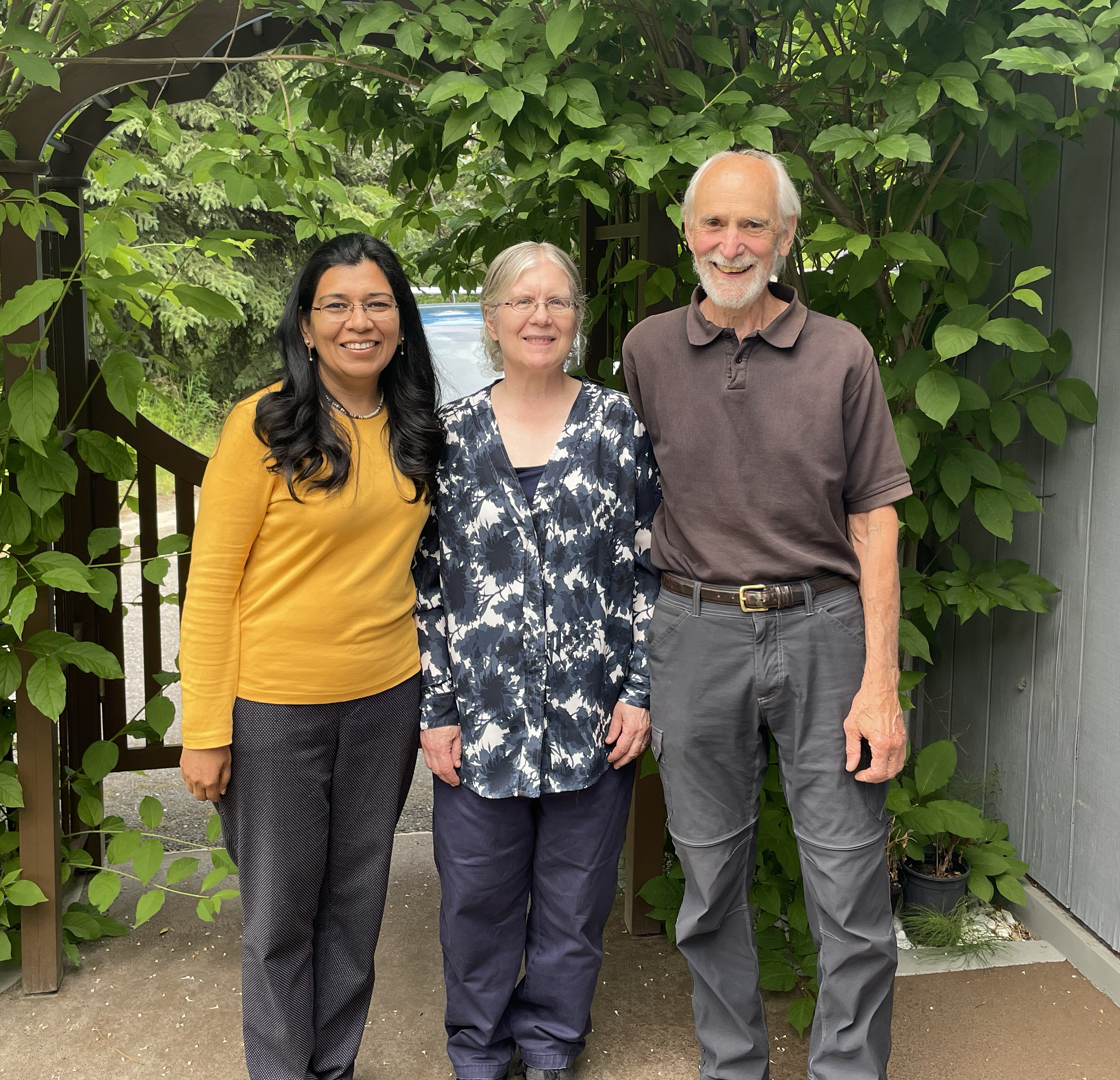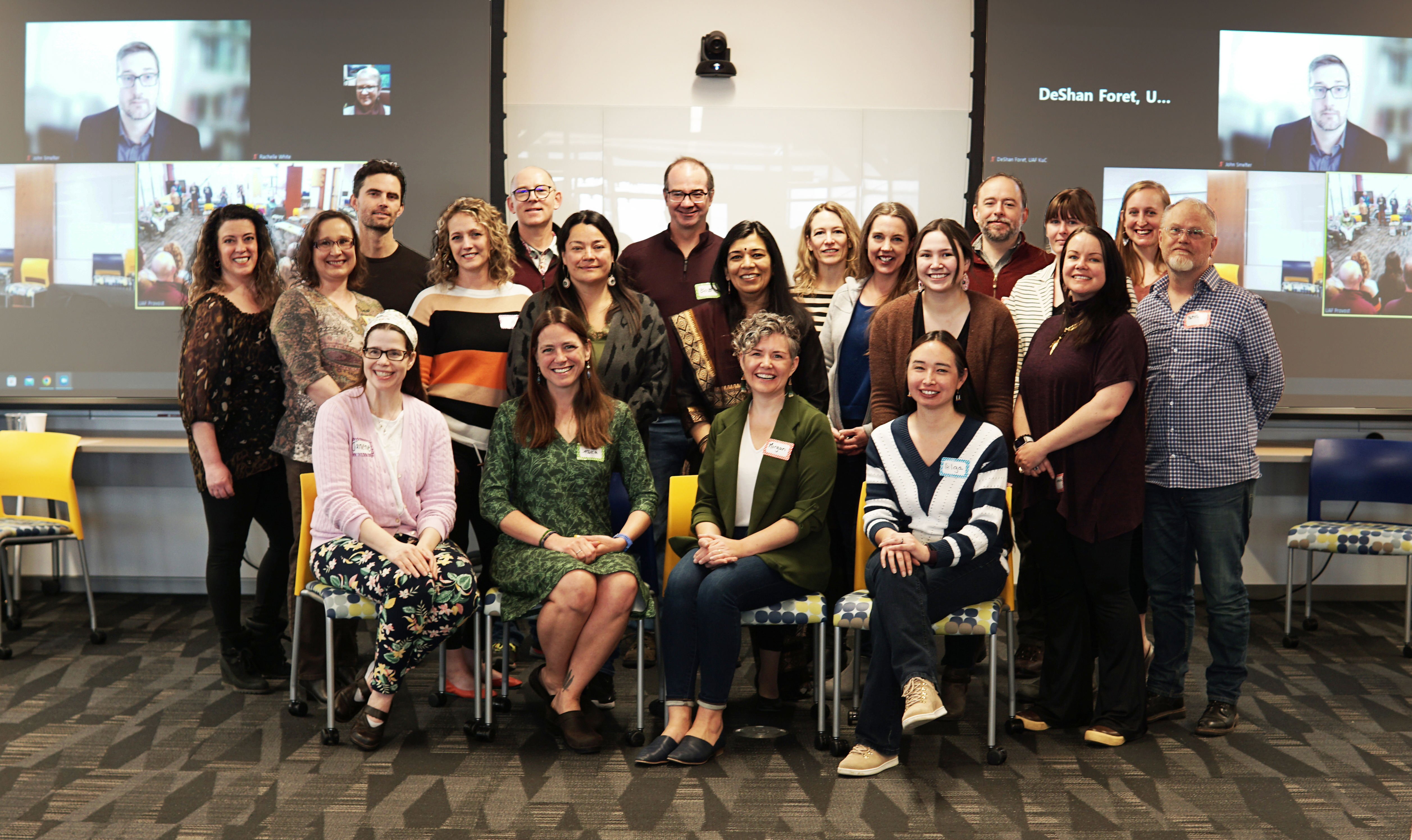Friday Focus: Academic Leadership Institute

UAF Provost and Executive Vice Chancellor Anupma Prakash pauses with former Provost Emeriti Paul Reichardt and Susan Henrichs, who were both instrumental in establishing and continuing UAF's Academic Leadership Institute.
May 13, 2022
— by Anupma Prakash, provost and executive vice chancellor
The landscape of higher academia is a complex one. To help understand the different facets of this environment, Provost Emeritus Paul Reichardt founded the UAF Academic Leadership Institute (ALI), a two-semester long professional development opportunity for about a dozen mid-career faculty who were interested in taking on greater administrative responsibilities. I participated and greatly benefited from ALI as Provost Emeritus Susan Henrichs continued offering the institute in the same vein. As I took the baton from Henrichs four years ago, I expanded ALI to include just over 20 faculty and staff members and adapted it to be more accessible and effective for remote participants.
ALI is intentionally designed to have a flexible format to allow the participants to take ownership of the institute and shape the sessions to cover their topical interest and personal learning styles. The 2022 ALI cohort prioritized wellness, and started each session with a mindfulness exercise – a very calming, energizing and grounding experience. We also agreed to embrace the that emerged from the “ŔÖ»˘Ö±˛Ą Native Dialogues on Racial Equity” project. If you are not familiar with these agreements, I urge you to spend some time reading and reflecting on them. I find them very powerful and inspiring.
In each session, we referred to G. Bolman and Terrence E. Deal’s research on reframing organizations by understanding four frames: structural, human resources, political, and symbolic. We used metaphors to contextualize the four frames for universities: structural frame (org charts; hierarchy), human resources frame (family; relationship), political (jungle; trading), symbolic (mascots; regalia; blue and gold). We also discussed the strength and weakness of our university or a unit within the university with respect to the four frames. Structural leaders are typically logical, goal-oriented, data-driven in decision making, and process oriented. Leaders who are strong in the human resources frame invest in the professional development of their team, value collaborative decision-making, and focus on relationships, fears and feelings of the team. Politically strong leaders are comfortable with competition, negotiations, power dynamics, and build networks of allies. Symbolic leaders are charismatic, visionary, and bring a team together by focusing on beliefs and purpose. We reflected on our individual leadership style, and our comfort and discomfort in operating in the four different frames within the context of the university.

Members of the 2021-2022 Academic Leadership Institute cohort gather for a group photo during one of their sessions.
ALI participants worked in four groups on different case studies they generated. The 2022 cohort chose: building university-community connections; well-being and mental health; urban and rural campus power dynamics; and women and leadership. My gratitude to the cohort members for their time, commitment, thoughtful discussions, and for building a strong community. I personally found that ALI helped me make meaningful connections, especially during the pandemic year, and provided me an opportunity to learn and grow.
If you or your colleagues are interested in participating in ALI, please consider applying. is open and the deadline to apply is Aug. 19, 2022.
Friday Focus is a column written by a different member of UAF’s leadership team every week.


